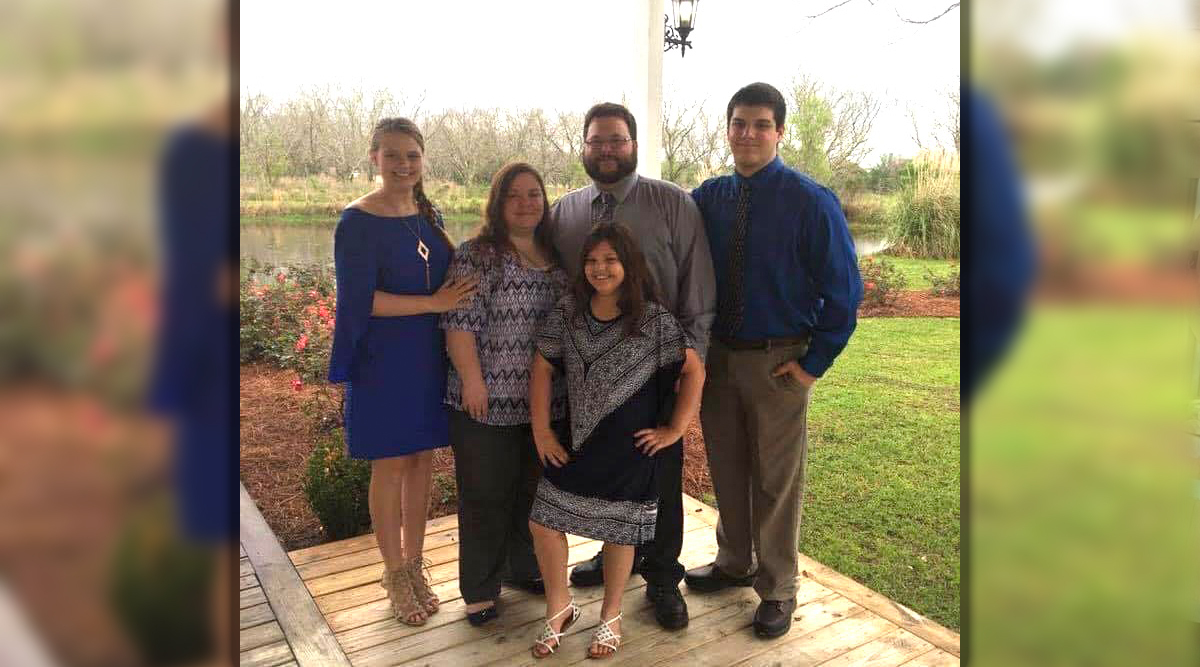Over the past two years the number of patients treated in ICU grew exponentially. Many cases were similar; many needs very different. One thing was clear: They needed continued care after they left the hospital. One program answers that call.
By IU Health Senior Journalist, TJ Banes, tfender1@iuhealth.org
Even on his strongest days, Richard “Rick” Letherberry’s voice is weak. He often walks with the assistance of a cane.
One year ago this month, Letherberry was diagnosed with COVID-19 pneumonia that attacked his lungs. He spent three months in the hospital. At one point he was in a coma and also on a ventilator for more than a month.
His wife, Caressa “Angel” Letherberry recalls the tragic day that his family was summoned to say their “good-byes.” At 38, Letherberry’s life and the life of his family changed forever.
As he continued to fight back, the virus took a brutal toll. He suffered sepsis, intense pain, difficulty breathing, walking, and talking. He experienced both cognitive and emotional challenges. He needs help with the things he once did with ease – like putting on his shoes and socks.

This man, a resident of Plainfield, Ind. is a father of three children who earns his living as a truck driver. He has been married to his wife for 11 years and has enjoyed serving as a youth pastor and minister of music.
But COVID took its toll.
“He had a beautiful singing voice but COVID stole that from us,” said his wife. And there’s more. With bilateral drop foot, he doesn’t walk the same. Letherberry used to love to play basketball. “Now he walks like an 80-year-old man and can’t play sports,” said Angel Letherberry.
Originally from Pensacola, Fla., Rick Letherberry says he’s heartbroken that he will never walk the beach again.
After a year off work, he recently returned to truck driving but it hasn’t been easy. He gets tired and continues to fight the long-term effects of the pneumonia and COVID-19. To help fight those effects, Letherberry is part of the IU Health ICU Survivor Center. Letherberry has been in the care of Dr. Sikander Khan and Dr. Conan Chittick.
“Dr. Khan is referring him out to all these specialists – occupational and physical therapy and also psychiatric therapy,” said his wife. Dr. Khan specializes in pulmonary critical care and oversaw the majority of COVID-19 patients treated at IU Health Methodist Hospital. After their discharge many patients voiced concerns about their quality of life – a majority experiencing fatigue and depression.
“We took part in a six-month research study on the effects of COVID and mental health,” said Angel Letherberry. Through the ICU Survivor Center, patients like Letherberry receive follow-up care and support. That support focuses on offering multi-disciplinary care that can address various aspects of the patient’s needs such as sleeping issues, anxiety, and overall physical health. The goal is to maximize the recovery for patients, reduce unnecessary hospital readmissions, increase patient satisfaction and decrease mortality.
“The ICU Survivorship Program helps in ways I didn’t think possible. It’s not like a regular doctor visit where you tell them what’s going on and they give you medicine and that’s that,” said Letherberry. “It’s like a one-stop shop. I went in expecting to see a doctor and met a nurse, social worker, and a chaplain. I’ve never felt so cared for by a doctor in my life.”
The ICU Survivorship Program also operates with a pulmonologist, nurse practitioner, nurse navigator, pharmacist, and a mindfulness trainer to create individualized care plans for patients. The team collaborates closely with therapy teams and makes referrals to the IU Health Center of Life for Thoracic Transplant as needed. Last year, the team saw 59 patients, and had more than 600 referrals.
“I hope the program continues to grow and reach more patients,” said Angel Letherberry. “I wish I’d known about it when he was in ICU but I was so focused on him not dying and I was just thinking about the future and what to expect. I’m thankful he’s alive and we have this support”
